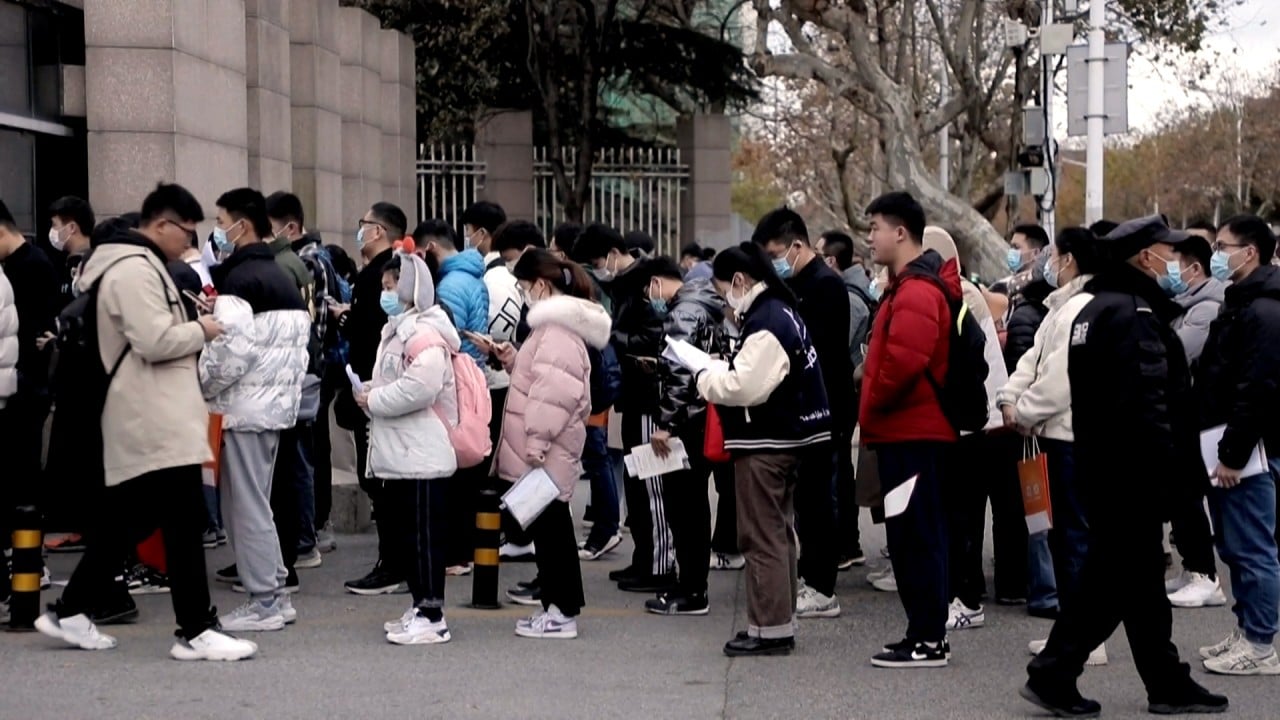
China’s youth say no thanks to work as ‘soulless robots’, even amid bleak job prospects
- More than 200 million people in China work as freelancers, with more than 16 per cent of fresh graduates categorising themselves as such last year
- But the trend towards freelance work is also being driven by necessity, with young Chinese entering a dismal job market in a weakening economy
After graduating from university last year, Fang Yu chose a creative life defined by insecurity, rather than searching for a mind-numbing job in a field he did not care about.
The 25 year old plies his trade as a singer at different bars in eastern China’s Hangzhou city. It may not pay well, but at least he has his freedom.
“The educational requirements for various industries are increasing, so we’ve been left with fewer opportunities,” he said. “Instead of selling our lives to earn that money, I decided to do what I like.”
Many of Fang’s classmates have struggled to find jobs since graduating. The lucky ones who have are invariably working overtime – a “horrible” thought for a “free spirit” like him.
Survey results and interviews show many of Fang’s generation feel the same way.
More than 200 million people in China work as freelancers, with more than 16 per cent of fresh graduates categorising themselves as such last year, according to a report by iiMedia Research published in March.
Some 48.7 per cent of respondents said they chose flexible employment because it gave them the “freedom to manage their own time”.
A record 10.76 million graduates will enter the job market this year, putting even more pressure on Beijing to stabilise employment in the world’s second largest economy.
He Jiazhi, 26, was fired in April from his two-year-old job as a primary schoolteacher in a small town located in the northern province of Inner Mongolia. Since re-entering the job market, he has found it much more competitive.
“I was previously able to get a job, but as of this year, they are suddenly demanding a bachelor’s degree, and my degree is clearly not adequate,” he said.
He is not nervous about his situation, however, as he has cut his living expenses to a minimum.
“I’m sort of lying flat, I guess, mostly because there’s very little opportunity to make great money despite working hard,” he said.
The “lying flat” mentality, which is about doing the bare minimum to get by, has gained traction with young Chinese over the past two years and captured numerous headlines.
The “consumption downgrading” group on Douban, an online bulletin board system, has attracted more than 360,000 members and over 340,000 people have joined the “not-buying” group, where these young people discuss how to cut spending.
For those in employment, the challenging economic backdrop has seen many lower their salary expectations, with this year’s class of graduates expecting a monthly salary of 6,295 yuan (US$868), down 6 per cent from last year, according to recruitment firm Zhilian.
A growing number of young Chinese are also choosing public sector employment for stability.
More than 2.123 million people sat China’s civil service exams this year, up 35 per cent year on year. Some 1.39 million passed the test but the official intake is only 26,000.
This means 37 young people are competing for one civil service position on average, according to the “2022 School Recruitment Big Data Report” by Zhilian in May.
But the stability of public sector jobs is still not enough to hold the attention of everyone. Li Yutong, 27, resigned in June last year after working for four years as an accountant in a state-owned enterprise in Shanghai.
Li did not find the traditional work environment attractive.
“I think people here have old-fashioned ideas and it doesn’t contribute to my career development.”
It feels like people are trading their lives for money, which really isn’t worth it
The overtime culture of most private firms is not appealing, either.
“It feels like people are trading their lives for money, which really isn’t worth it,” she said.
Zhao Wenyao also quit her job due to stress four months ago after 11 years in the sales industry.
Although Zhao felt anxious about quitting, she says “lying flat” has allowed her time to return to the things she loves in life.
“Nowadays many people are like soulless robots, lacking a real love and passion for their work,” she said.
Social mobility has become harder, he said.
“With these new insights, young people may be self-motivated to change to another lifestyle,” he said.
“When young people find other meanings of their life, via self-reflection or inspiration … they may choose to live another, more fulfilling life.”



